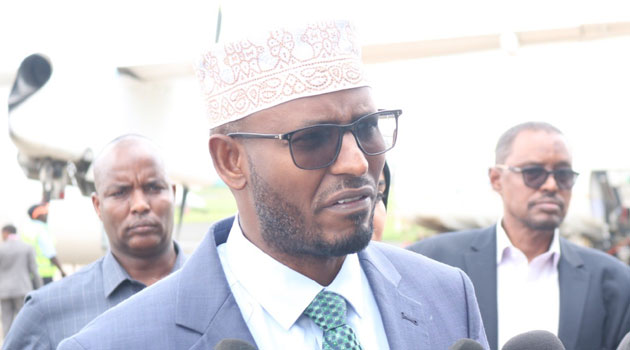
NAIROBI, Kenya, Sep 29 – The Council of Governors has called for an urgent review of the e-Government Procurement (EGP) rollout, warning that counties are “grounded” as delayed salaries, unpaid contractors, and stalled operations cripple essential services.
Speaking during the Intergovernmental Budget and Economic Council (IBEC) meeting, chaired by deputy president Kithure Kindiki, CoG Chairperson Ahmed Abdullahi said the new procurement system, introduced by the government is turning what is normally a slow first quarter into a “disastrous” one.
“Q1 generally is difficult because of the roll over from one fiscal to the next even without the challenges of e procurement and the new guidelines suggested by the controller. Generally, Q1 is slow but this quarter one is disastrous,” Abdullahi said.
“It’s disastrous because we’ve not been able to spend money at all on account of the challenges that we’ve had.”
He argued that sometimes the CoG “feel the policy makers think only of Nairobi and its environs and “don’t take into account the diversity of counties.”
The CoG boss lamented that several governors cannot pay salaries after their budgets were wrongly mapped in the system, leaving them frozen out of transactions.
He added that many contractors, fuel suppliers, and municipal service providers have withdrawn their services due to delayed payments, leaving counties exposed.
“A governor is called by his health minister, and he’s told we have run out of this drug or we have run out of this drug that we need to use to intervene in an emergency and we cannot buy. A lot of governors have been frozen here by their fuel vendors. Our municipalities if they don’t get fuel for 2 days all the garbage is placed on the roads,” Abdullahi noted.
He stressed that governors are not opposed to automation but faulted the rollout of the EGP, saying it was rushed and implemented without considering the diversity of county contexts.
“We feel that this e-Government Procurement thing along the road you people will either realize that you are not given the full picture and would ask to reverse it, or it will be implemented with pain that was not necessary. “
Abdullahi, who spoke on behalf of all 47 governors, urged IBEC to urgently find a solution, warning that continued paralysis risks grinding counties to a halt.
While acknowledging the challenges, DP Kindiki said that “there are no easy solutions to some of the policy issues that we must face as a country, as a people.”
Kindiki noted that the government had “made some progress” on the matter and expressed optimism that the ongoing challenges on the e-GP rollout would be resolved.
The remarks come amid growing tension between county governments and the National Treasury over delayed disbursements, with the EGP system now emerging as another flashpoint in intergovernmental financial relations.
On August 31, President William Ruto ruled out any reversal of the government’s electronic procurement system, insisting it will remain in place despite growing opposition.
Ruto defended the platform as the most effective tool to eliminate corruption in the acquisition of government goods and services.
“Many people are used to getting corrupt tenders, something worth two shillings, we buy for ten shillings as a government because of corrupt procurement there with quotations and so on and so forth,” the President said.
“We have said we are putting this e-procurement in place, so that everybody can know how much an item was bought for and who sold it to the government.”
He dismissed critics, saying no amount of intimidation or blackmail would compel the government to abandon the system.
“I know there is resistance from procurement officers and accounting officers, they do not want this because they want to continue with the old corruption.”
The rollout of the mandatory e-procurement system has sparked mixed reactions, with a section of MPs and Governors voicing strong objections.
The e-Government Procurement (e-GP) system was officially launched on April 7, 2025 and is set to become the sole platform for all public procurement processes across Ministries, Departments, and Government Agencies (MDAs) starting from the 2025/26 financial year.
According to the National Treasury Cabinet Secretary John Mbadi, the system is expected to save the country up to Sh50 billion annually by curbing procurement-related fraud and inefficiencies.
The e-GP system digitizes the entire procurement process—from planning and bidding to contract management and payment.
Suppliers are required to register on the platform, submit bids online, and track the status of tenders and contracts.





